Publications
Articles, publications, books, tools and multimedia features from the U.S. Institute of Peace provide the latest news, analysis, research findings, practitioner guides and reports, all related to the conflict zones and issues that are at the center of the Institute’s work to prevent and reduce violent conflict.
Question And Answer
Amid a Changing Global Order, NATO Looks East
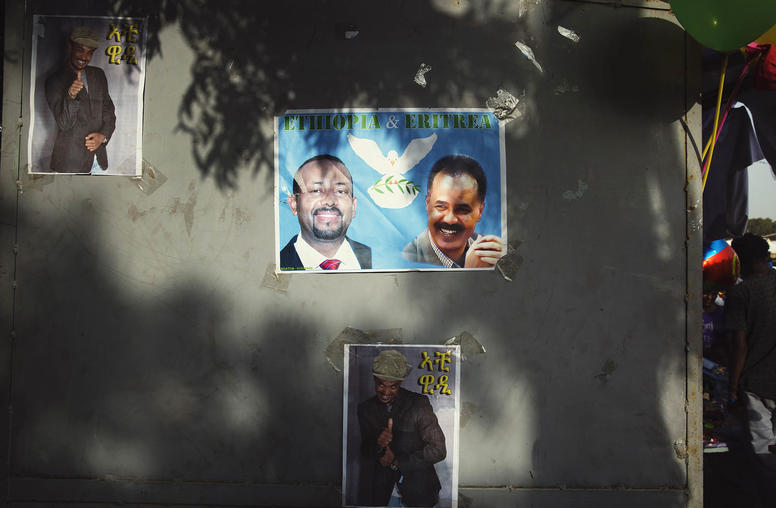
Taking Ethiopia-Eritrea Tensions Seriously
The historically fraught relationship between Ethiopia and Eritrea is deteriorating once again. A seemingly momentous peace deal that brought the two sides together in 2018 now appears to have been a brief interlude in a longer arc of enduring rivalry. The sources of recent tension include Ethiopian Prime Minister Abiy Ahmed’s public posturing around sea access and dynamics seeded by the 2018 peace deal itself. Neither side can afford escalation, but open conflict remains a possibility and even outcomes well short of direct hostilities — perhaps a return to the “no war, no peace” situation of preceding decades — would be disastrous for the two nations and the broader region.
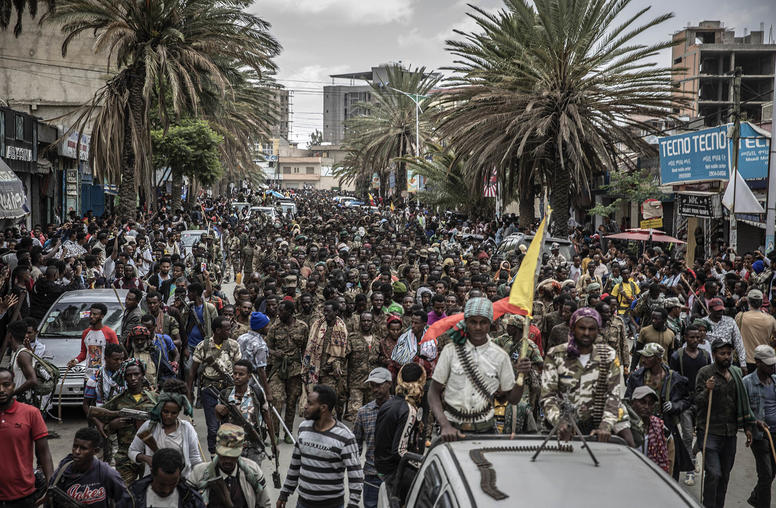
Peace for Ethiopia: What Should Follow Blinken’s Visit?
Secretary of State Antony Blinken’s talks in Ethiopia and his announcement of new U.S. aid this week advance vital steps for building peace in the country and greater stability in East Africa. Yet those tasks remain arduous and will require difficult compromises on all sides in Ethiopia’s conflicts. U.S. and international policymakers face a tough calculation over how to mesh critical goals: restoring full trade and economic assistance to help Ethiopia meet its people’s needs while also pressing all sides to advance justice and reconciliation to address the atrocities committed and damage caused during the war.
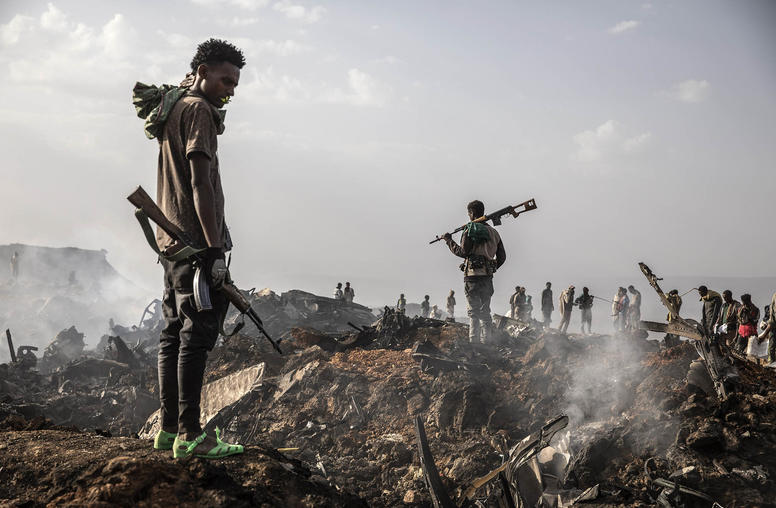
Ethiopia’s civil war is raging. How can it get on track toward peace?
In August, the devastating conflict in northern Ethiopia resumed, effectively ending the March 2022 humanitarian truce between the Ethiopian federal government and Tigrayan forces, which many hoped would pave the way for a negotiated cease-fire and peace talks. This week, the African Union’s chairperson called for an immediate cease-fire and U.S. Secretary of State Antony Blinken also called on the parties to cease hostilities and participate in talks organized by the African Union. What comes next in Ethiopia will have major implications for its people, the strategically vital Red Sea arena and for U.S. interests in the region. Stepped up, senior-level U.S. engagement is direly needed to get Ethiopia on a path toward peace.
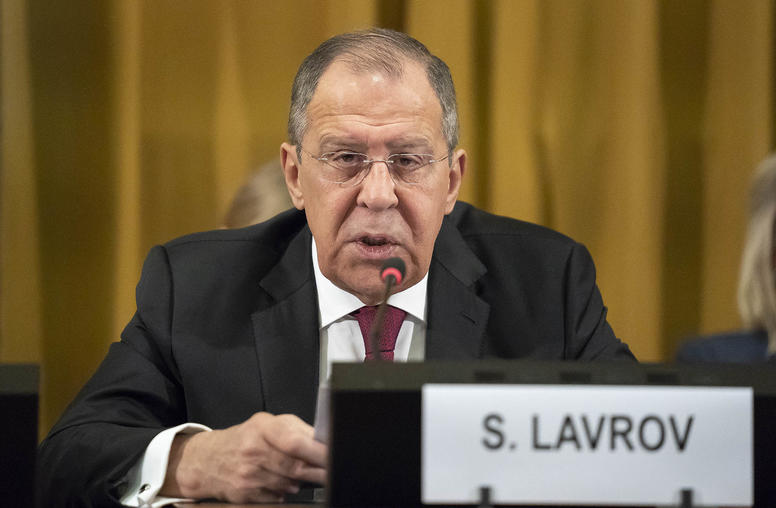
Amid War in Ukraine, Russia’s Lavrov Goes on Diplomatic Offensive
As Russia’s unprovoked and illegal war against Ukraine enters its seventh month, the Russian government continues its diplomatic offensive to prevent more countries from joining international condemnation and sanctions for its military aggression. Between July and August, Russia’s Foreign Minister Sergey Lavrov traveled to Egypt, Ethiopia, Uganda, the Republic of Congo, Myanmar and Cambodia — the last as part of the Association of Southeast Asian Nations (ASEAN) Foreign Ministers’ Meeting. This tour represented an evolving reorientation of Russian foreign policy from Europe to the Global South that has accelerated since Russia’s first invasion of Ukraine in 2014.
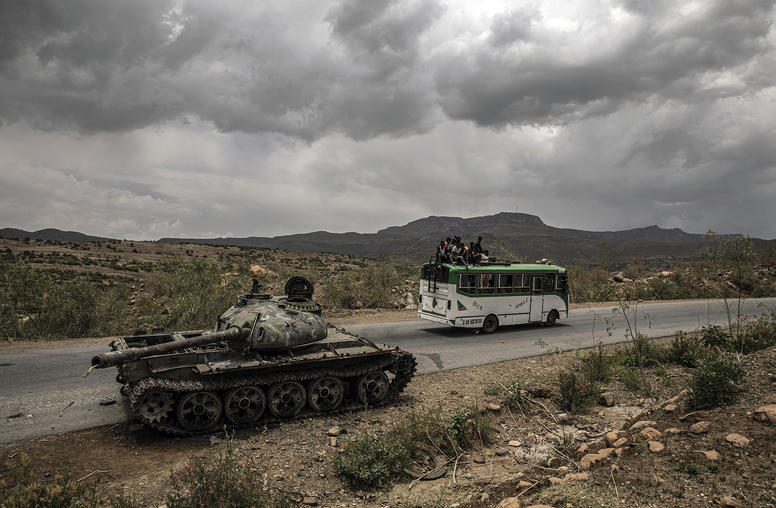
Ethiopia’s Truce Offers Hope, But the Next Steps Are Complex
After 16 months, one of Africa’s deadliest wars has yielded an opportunity to build peace, as Ethiopia’s government and the Tigray Defense Forces have declared a truce to allow for the humanitarian aid needed to prevent mass starvation across the country’s northeast. Ethiopians and their supporters must seize this moment to consolidate a durable cease-fire and end blockages to humanitarian assistance. This effort should open a path to a broad national dialogue to set a shared vision for Ethiopia’s future, growth potential and long-term stability. But the essential first steps are complex and will need to be taken carefully and swiftly.
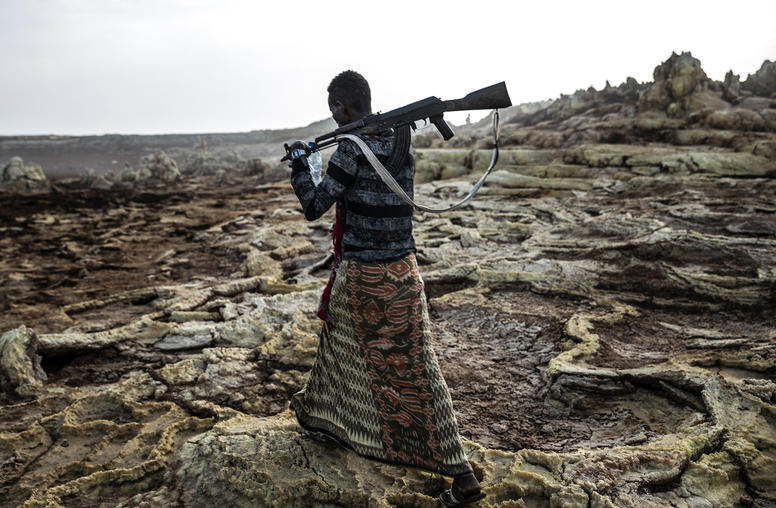
Despite High Stakes in Ethiopia, China Sits on the Sidelines of Peace Efforts
Since November of 2020, Ethiopia has been suffering from a deadly internal conflict that has claimed an estimated 50,000 lives and displaced over two million. The United States, the African Union and others in the region have attempted to secure a cease-fire between the federal government and the Tigray People’s Liberation Front (TPLF) but have made little headway. In contrast, China has remained mainly on the sidelines of peacebuilding efforts even though Ethiopia — the second most populous country in Africa — is a centerpiece of its Africa policy.
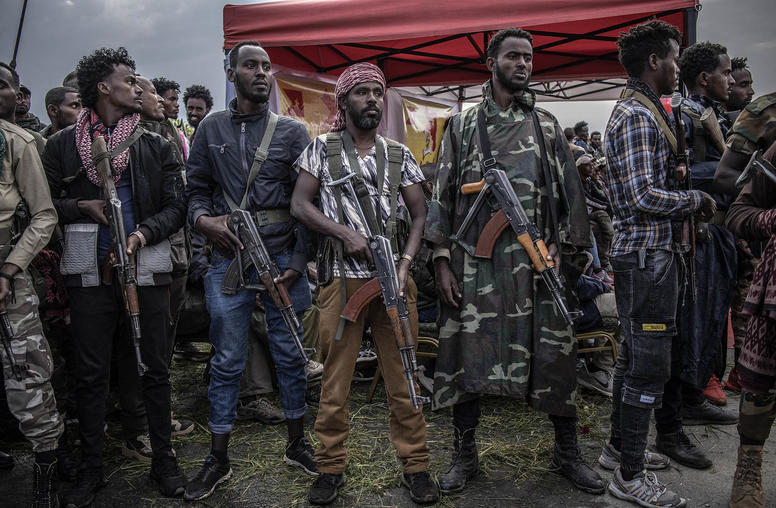
U.S. Urges Ethiopia to ‘Give Peace a Chance’
The United States’ top priority is the “unity and integrity of the Ethiopian state” and its “commitment to the Ethiopian people,” U.S. Special Envoy for the Horn of Africa Jeffrey Feltman said at the U.S. Institute of Peace in Washington on November 2. Noting that the average civil war lasts 20 years, Feltman said a war that long would be disastrous for Ethiopia and urged all parties to the conflict to “give peace a chance.”

Joseph Sany on the Turmoil in Ethiopia and China’s Role in Africa
As China steps up its engagement in Africa amid lagging vaccination rates and tensions in Ethiopia, USIP’s Joseph Sany says U.S. policy must avoid a narrow, competitive mindset: “[China] is doing what a major superpower does … [the United States] must address African interests, not impose American interests.”
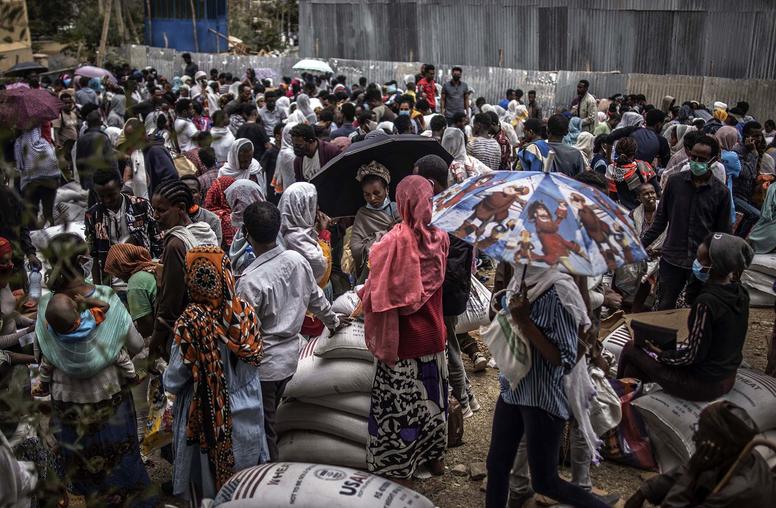
Five Steps to Sustain a Cease-Fire in Northern Ethiopia
After months of war and amid an intensifying humanitarian crisis in Ethiopia’s northern region of Tigray, the Ethiopian government unilaterally declared a “humanitarian cease-fire” on June 28. If Ethiopia wants this truce to end the war it needs to persuade Tigrayan forces, which have so far vowed to keep fighting, to agree to a deal. As a prelude to wider negotiations, the odds of ending the conflict would improve if confidence building measures are urgently undertaken and five key areas of a truce expanded. U.S. and international partners can promote these steps while recognizing that Ethiopians must own any cease-fire process.
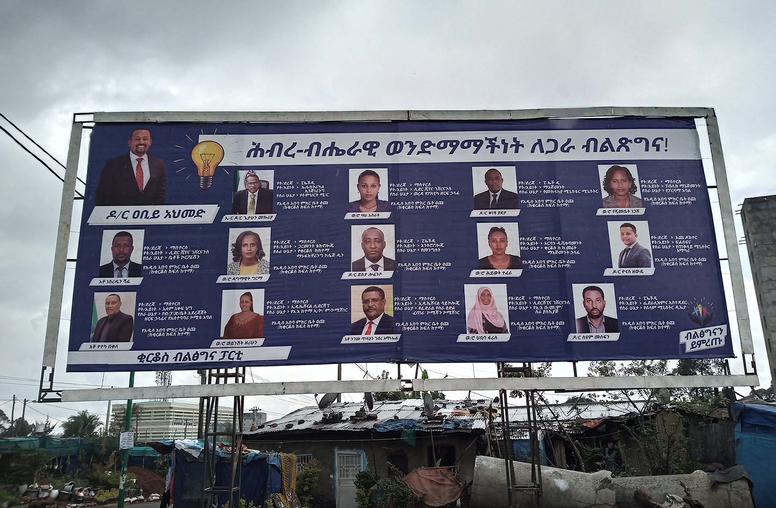
Why Ethiopia’s 2021 Elections Matter
Facing numerous technical difficulties, the National Election Board of Ethiopia (NEBE) delayed parliamentary elections from June 5 to June 21, postponing the vote for the second time. Some major opposition parties are boycotting, and no voting will take place in civil war hit Tigray or in several other areas facing insecurity. Elsewhere, deficiencies in election administration have meant voting has already been postponed in many constituencies, and some of the logistical arrangements to underpin the vote are still to be implemented. Although there are risks of electoral violence, any incidents are unlikely to be especially significant in a context of high levels of ongoing political violence.